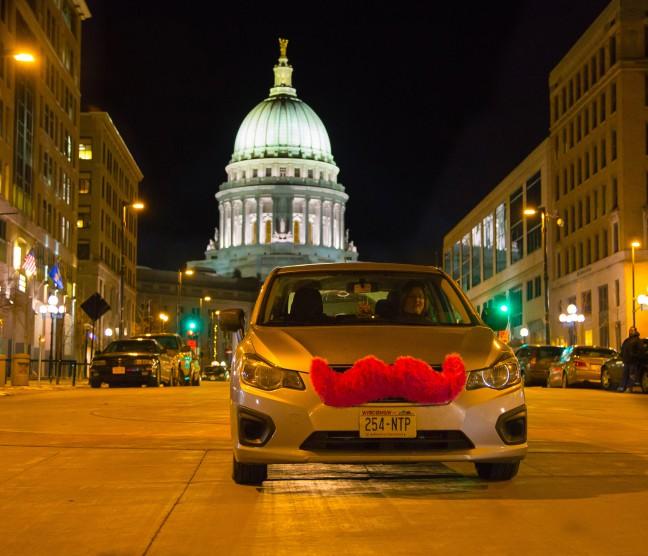Drivers of two newly-launched ride-sharing companies were ordered to cease operations or face a $700 fine in a meeting Wednesday, where cab drivers and police condemned the services as illegal under current city ordinance.
The Madison Transit and Parking Commission heard concerns about safety, equity and liability, as well as fair competition with the city’s well-established licensed taxi cab services.
Lyft and Uber both arrived in Madison within the past two weeks and have been met with controversy because of a city ordinance that requires all public transportation go through a process that includes a background check and review from the city for operating licenses and vehicle and driver permits.
Madison Police Department Capt. Carl Gloede said Lyft and Uber operations should end until the legal issues are resolved. He said active drivers are in violation of city ordinances and can be fined $700 a piece. The mobile app makes their service easy to monitor, he said.
Jason Glomp, a Union Cab driver and member of the company’s board of directors, said Uber and Lyft should not be exempt from licensing ordinances that taxi companies have to follow.
“They tell people that they’re not taxi companies and therefore should not follow the same rules,” Glomp said. “However, as I understand, their business model is they contract drivers to pick up customers on demand for a fee. My question is how is that not a taxi service?”
Christina Ballard, a Union Cab dispatcher, said the current ride-share operations are illegal and, if allowed to continue, would set a precedent for future taxi services, which could escalate to a legal battle, she said.
“As of today there are 715 licensed cab drivers in the City of Madison,” Ballard said. “If we allowed the 715 drivers to do what Lyft and Uber do, there would be 715 different fare structures, 715 different ways to file a complaint, 715 different ways to solve problems.”
Laura Alvarez, a Lyft driver, said the common misconceptions about the company are about insurance and the employment of drivers.
All Lyft drivers must have their own personal insurance and also receive additional insurance from Lyft for when they are picking up a passenger or headed to pick up a passenger, Alvarez said. A background check is done on all Lyft drivers as well as thorough car inspections, she said.
“I hear a lot of fear, I hear a lot of questioning about uncertainty,” she said. “I think with Madison’s population exploding as it is, there will be plenty opportunity for both the traditional cap paradigm and companies like Lyft and Uber to operate. They serve different communities.”
Both Lyft and Uber representatives said there are $1 million insurance policies for the companies available as backup to the driver’s personal insurance.
Taxi representatives and city officials voiced concerns about discrimination that could occur and how drivers are able to refuse a ride whereas licensed taxi services do not have that option.
Nick Anderson, general manager of Uber Technologies in Madison, said the argument that Uber “cherry-picks” neighborhoods when refusing rides has no basis in fact.
Ald. Scott Resnick, District 8, said there will have to be some regulatory compromise to accommodate the new ventures.
“My approach here is to try to make Uber and Lyft work within the city of Madison,” Resnick said. “I will be looking to draft legislation that will hopefully be a compromise that will allow Uber and Lyft to play on the same playing field as traditional taxi cab companies.”
[media-credit name=”Kirby Wright” align=”alignnone” width=”336″] [/media-credit]
[/media-credit]












